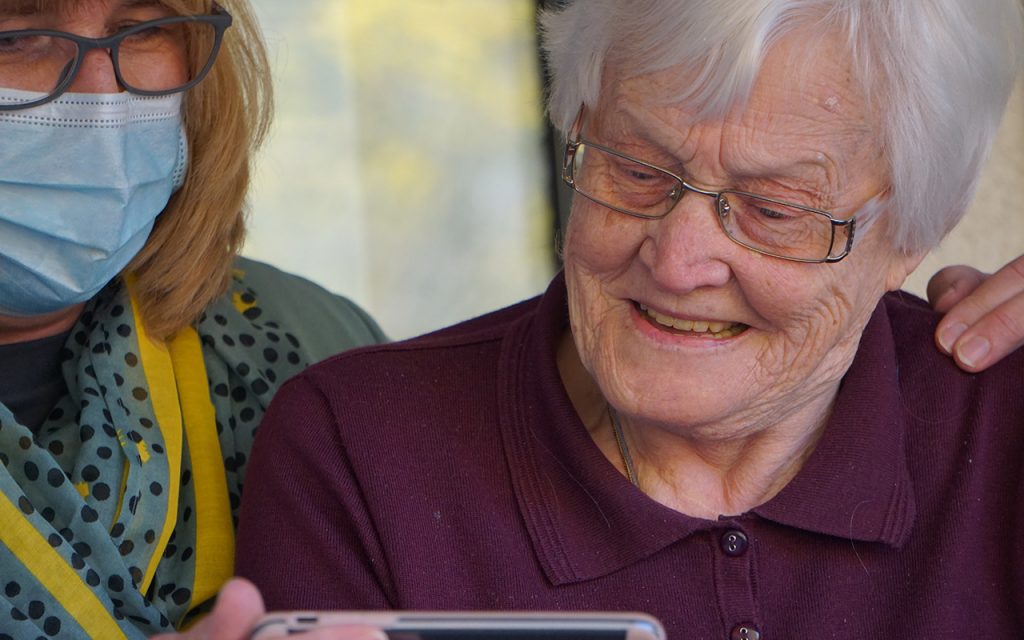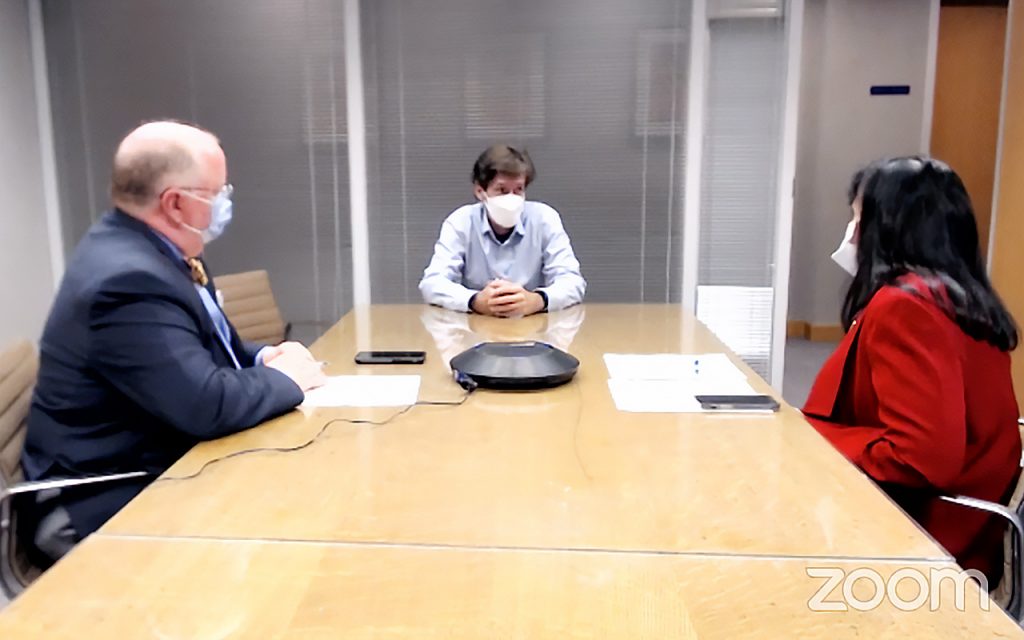Mississippi thus far has avoided the dramatic uptick in new cases that countries like the United Kingdom and South Africa have faced from the omicron variant of coronavirus, but state health leadership is encouraging residents to remain vigilant after detecting the variant in Mississippi.
“Use your common sense,” State Health Officer Thomas Dobbs said Friday. “COVID is still out there.”
Dobbs joined health leaders from the Mississippi State Medical Association for an update on the evolving pandemic in Mississippi, with detailed information on our present understanding of the omicron variant, just recently detected in Mississippi.

Information on the omicron variant continue to emerge, with the most recent data suggesting it possesses strong immune evasiveness in addition to heightened transmissibility—even compared to delta.
“We’ve learned a few things based on our experience in a few places. Omicron looks like it’s more contagious than delta. Something out of Israel early on said about 30% more contagious.”
While that increased infectivity may be concerning, Dobbs explained that it represents a smaller jump than delta did. “Remember, (going from) alpha to delta was like 300% more contagious. (Omicron) is more contagious, but I don’t know that the jump will be an order of magnitude,” the state health officer said.
But the conversation also touched on a potentially positive topic—the hopeful estimations that omicron may prove a more mild strain of coronavirus compared to delta.
“One of the things that we’ve seen, which is somewhat reassuring, is that even though they’ve had a lot of cases, they haven’t seen a significant increase in the number of hospitalizations or deaths,” Dobbs said. “They’ve had some variation, but it doesn’t seem to be like they’ve seen the same sort of pathogenicity that we’ve seen before.”
Hope for a less deadly variant comes with a number of caveats, the state health officer warned. “Is it younger folks who have got it and are getting less sick?” he asked. A longer course of infection or initial spread in primarily younger populations could be masking higher virulence. More importantly, the immune evasiveness and high infectivity of the variant could make a massive outbreak an incredibly deadly event, even if the virus was more mild on average.
For the omicron variant’s much-discussed immune evasiveness, MSDH’s appraisal of the data is mixed. “Based on data from England and others … it looks like if you’ve had the booster dose, Pfizer looks like it’s about 75% (effective) at preventing illness.”
Dobbs then extrapolated from data showing poor immune response to omicron from the AstraZeneca vaccine to suggest that Johnson & Johnson would likely provide limited protection from symptomatic illness as well.
However, the state health officer also noted that measures of vaccine effectiveness are only concerned with infection, not outcome. As deeper immune response is derived from t-cells, not antibodies, vaccinated individuals can be susceptible to symptomatic infection and still protected from severe disease, hospitalization, and death.
Long-Term Care Facilities At Risk?
But what about individuals with potentially weak t-cell response? The Mississippi Free Press asked Dobbs if, given the threat that omicron poses to immunocompromised and elderly adults, the state health department was actively considering further measures to protect the state’s long-term care facilities.

“Boosters are the thing, right? That’s so important. And we are working with long-term care centers and with their associations to kind of get the booster doses up,” Dobbs said. He added that the current rate of booster doses is “not near what the total vaccination rate is. We’ve got to get it closer to 90%, or to wherever we are with the initial series of vaccines. We’ve got a long way to go. We are going to continue our mandatory testing protocol for unvaccinated folks.”
Mandatory testing, Dobbs said, provides “sentinel events,” early warning alarms for serious outbreaks before they spread too far into the vulnerable environment of the care facilities. Current guidelines prevent MSDH from declaring boosters mandatory for employees of care facilities, Dobbs said.
One of the more concerning features of omicron is that its unique structure renders most currently available monoclonal antibody therapy ineffective. Dobbs said that, for highly at-risk populations like those in long-term care facilities, a new combination MAB treatment would be available as of this week.
“Who is it for? What’s the purpose? (Well,) it’s really indicated for people who are unlikely to benefit from vaccination, it’s going to be for transplant patients. It’s going to be for people on active chemotherapy or radiation treatment,” Dobbs said. This advanced antibody treatment could help to bridge the gap for those who need additional protection from the particularly evasive variant.
Variant Sequencing
Omicron is unique among variants of concern identified thus far—often, the variant lacks a specific genetic profile that regular PCR tests are calibrated to detect. This means that these tests can often detect the variant without the use of lab sequencing. The Mississippi State Department of Health’s Communications Director Liz Sharlot confirmed to the Mississippi Free Press in a statement that MSDH was using both regular PCR tests and in-depth sequencing to identify cases of omicron in the Magnolia State.
“The Mississippi Public Health Laboratory utilizes molecular technology that identifies multiple genomic targets of SARS-CoV-2, the virus that causes COVID-19, to ensure the continued detection of variant strains and to assist with prioritizing specimens that possess gene drop-outs to genomic sequencing,” Sharlot wrote, indicating that PCR tests which identified errors associated with the omicron variant would be quickly examined to confirm the presence of the variant.
“The MPHL and its contract laboratories sequence SARS-CoV-2 positive specimens obtained from MS patients with geographic, demographic and clinical syndrome diversity to ensure true state-wide surveillance,” Sharlot wrote.










